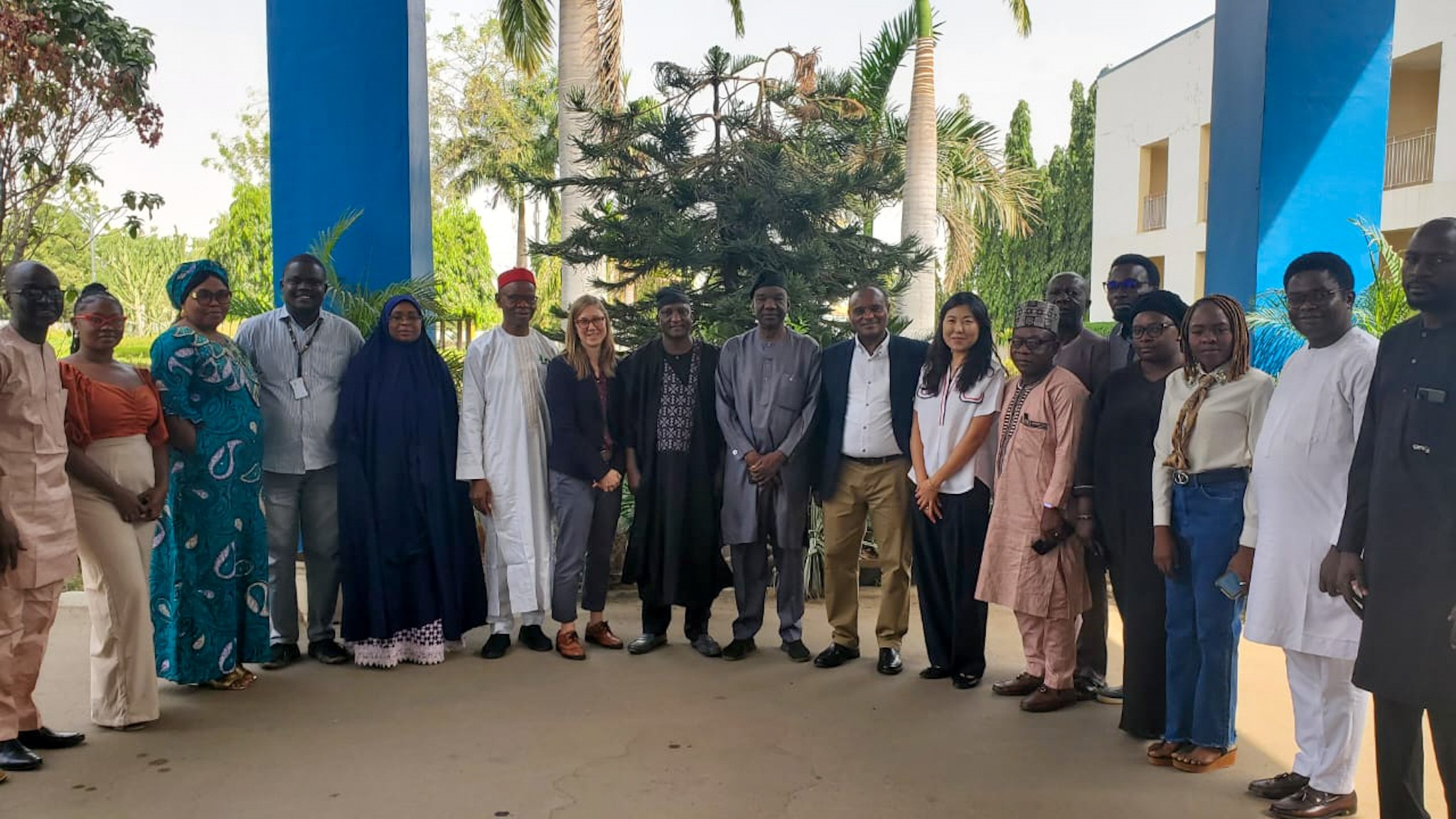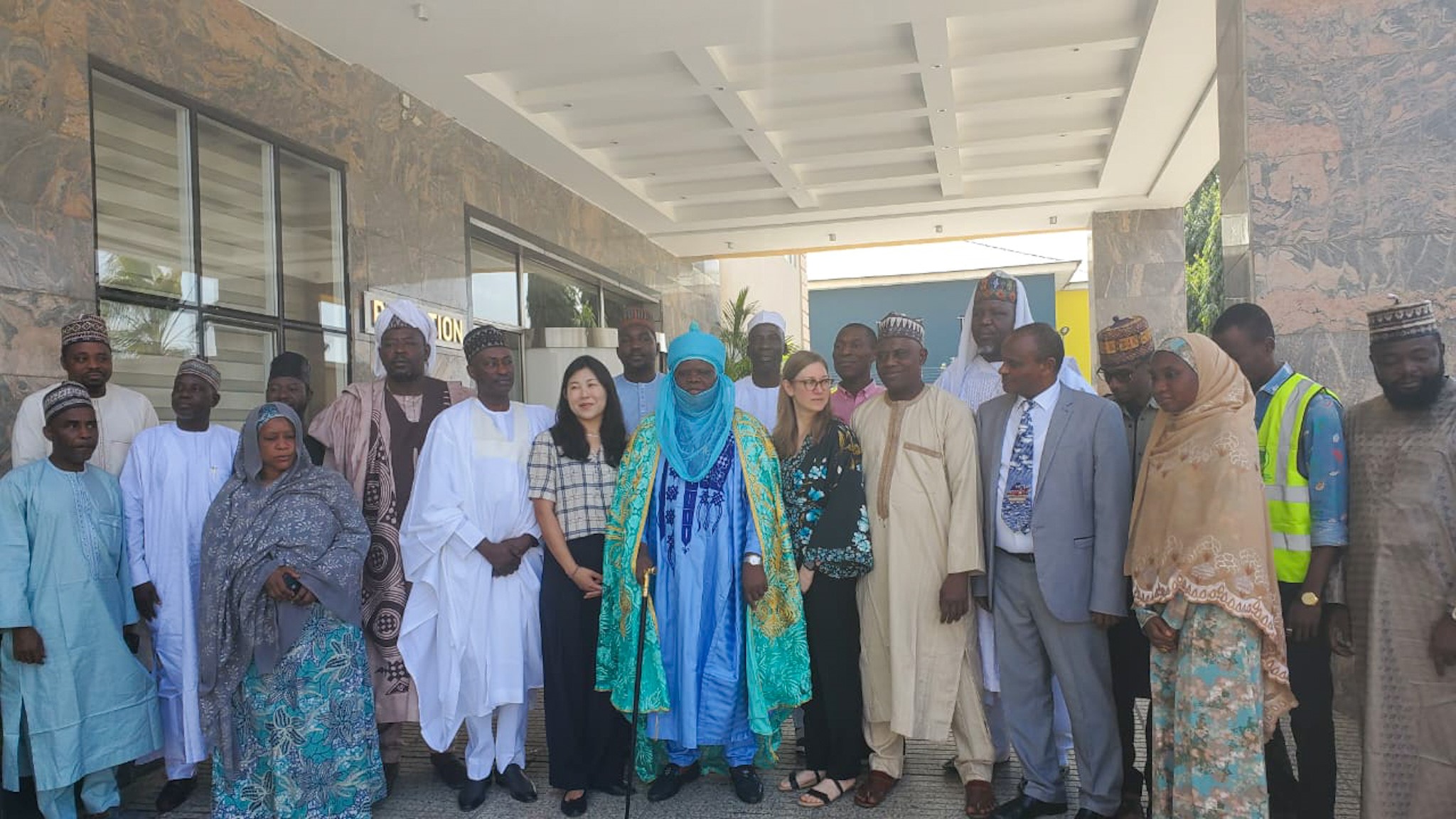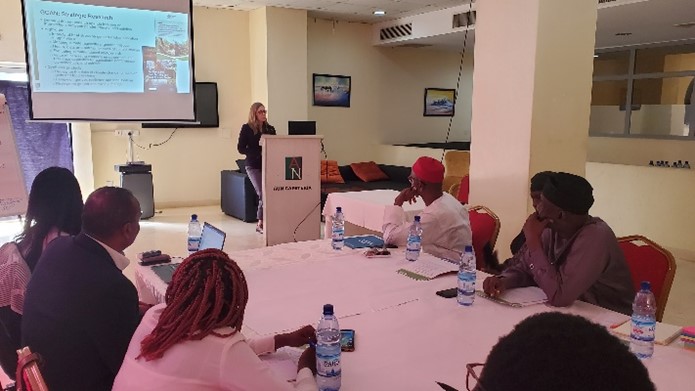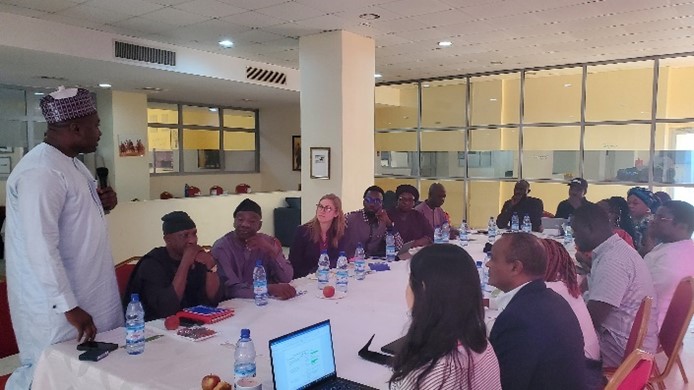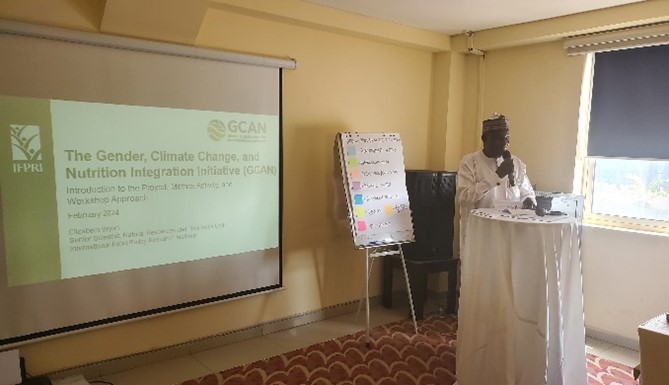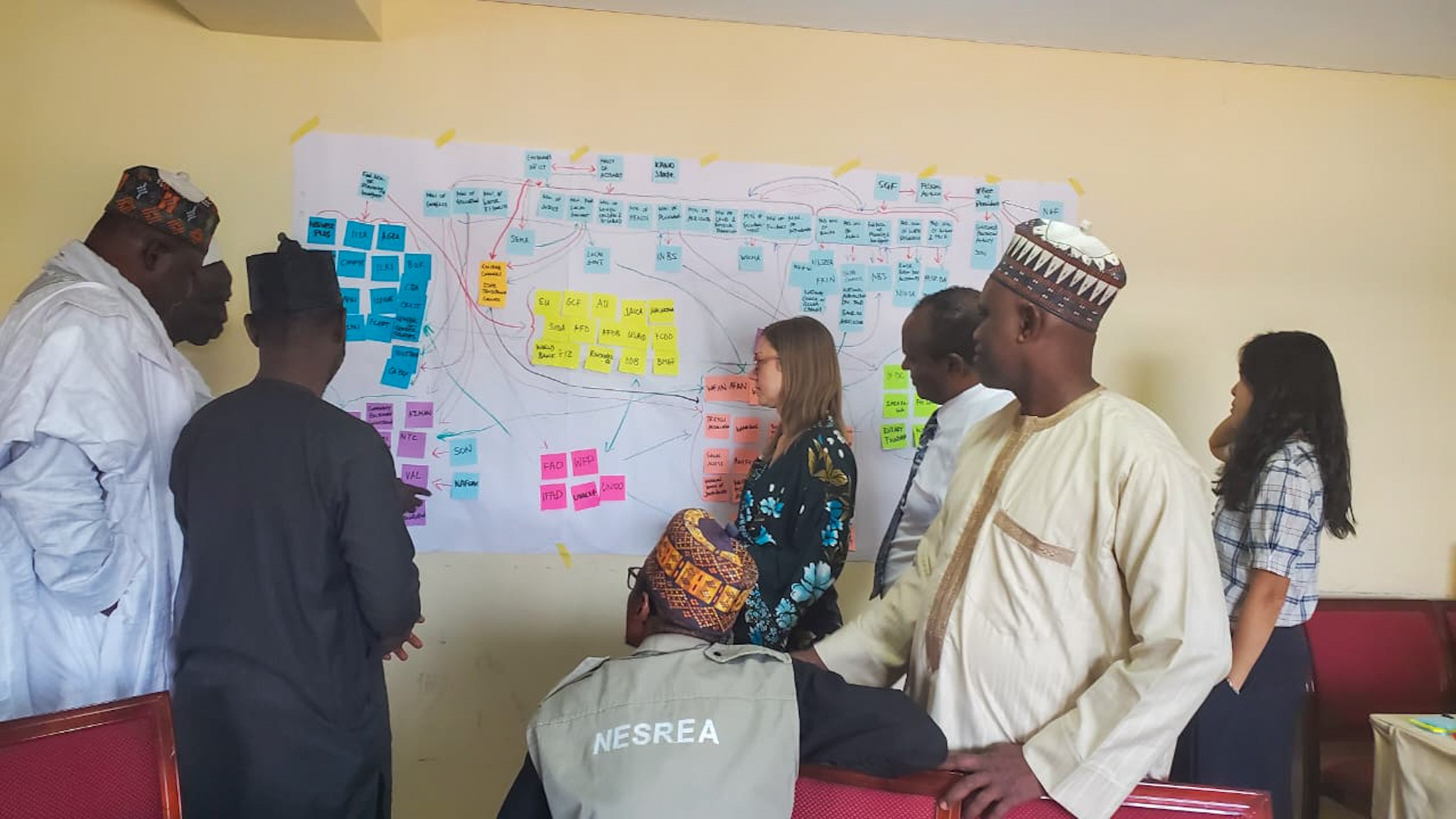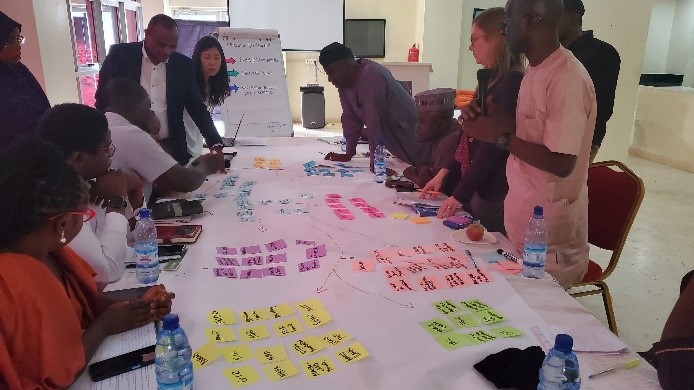Bedru Balana, Elizabeth Bryan, Ara Go, Augustine Iraoya, & Omobolanle Onilogbo[1]
Participants at the GCAN Net-Map workshops in Adamawa/Yola (left) and Kano (right). Photo credit: Augustine Iraoya/IFPRI
The Gender, Climate Change, and Nutrition Integration Initiative (GCAN), led by the International Food Policy Research Institute (IFPRI), organized a series of Net-Map workshops between February 22–29, 2024 in three states in Nigeria: Adamawa (February 22), Kano (February 27), and FCT-Abuja (February 29). With support from the Bill and Melinda Gates Foundation (BMGF) 2023–2027, GCAN aims to ensure that agricultural investments, policies, and actions on climate change fully integrate gender equality, women’s empowerment, and nutrition objectives. The purpose of the workshops was to identify key actors involved in designing, implementing, and monitoring climate change policies and interventions in Nigeria at both the national and state level, how they interact, and the level of influence each actor holds in climate change policy processes.
The workshops were co-facilitated by locally recruited consultants, Professor Musa Tukur Yakasai (Kano) and Mr. Yohanna Moses (Adamawa), and the IFPRI team, which included Elizabeth Bryan (Senior Scientist), Bedru Balana (Research Fellow), Ara Go (Senior Program Manager), and Augustine Iraoya (Research Analyst). The workshops brought together a diverse array of stakeholders from different types of organizations—including government ministries, NGOs, academia, and the private sector—with knowledge of (1) climate change policies, investments, interventions, and frameworks for monitoring and evaluation in Nigeria and (2) opportunities for integrating gender and nutrition.
Prominent attendees included Honorable Yohanna Sahabo Joro (Chairman of the Committee on Environment at the Adamawa State House of Assembly), Professor David Finchiwa Jatau (Commissioner, Agriculture Ministry, Adamawa State), Honorable Aliyu Ababukar (Permanent Secretary, Environment Ministry, Adamawa State), Madam Safiya Abubakar (Controller, Environment Ministry, Adamawa State), Ambassador Ahmed Ibrahim Yakasai (Emir of Kano Emirate Council), Dr. Farouk Rabiu Mudi (President of All Farmers Association of Nigeria), Professor Ado Mukhtar Bichi (Deputy Vice Chancellor, ADUST), and Mrs. Gloria Zakka (representing the Permanent Secretary, Federal Ministry of Environment).
All three workshops began with an introduction to GCAN and the Net-Map methodology and an overview of the workshop objectives by Elizabeth Bryan and Bedru Balana, followed by opening remarks from invited keynote speakers. Keynote speakers in Adamawa and Kano expressed their appreciation for selecting their respective states, recognizing the significance of addressing gender disparities and nutrition challenges. Honorable Yohanna Sahabo Jauro remarked, "Holding the GCAN workshop in Adamawa provides an opportunity for key stakeholders to address gender disparities and empower women as agents of change in climate action initiatives." Professor David Finchiwa Jatau added, "It was very thoughtful of IFPRI to have chosen Adamawa State for the GCAN project."
Ambassador Ahmed Yakasai, Emir of Kano Emirate Council (left), and Prof. Ado Mukhtar Bichi (Deputy Vice Chancellor, ADUST) giving remarks. Photo credit: Augustine Iraoya/IFPRI
Ambassador Ahmed Yakasai noted that selecting Kano State for the GCAN workshop aligns with its goal to address the interconnected challenges of climate vulnerability, malnutrition, and gender disparities. In his opening remarks, Professor Ado Mukhtar Bichi highlighted the interconnectedness between climate change, gender, and nutrition and the need for integrated policies and actions to address these issues. In this respect, he said, GCAN’s integrated and coordinated approach is timely and highly relevant to Kano State and Nigeria at large.
Participants first delved into identifying key actors involved in climate policies and action, gender equity, and nutrition in Nigeria, generating a list ranging from national and state policymakers to NGOs, donors, the private sector, research institutes, and community-based organizations. Participants then drew linkages between these different actors to highlight flows of information, funding, and influence. Each actor was assigned a level of influence to facilitate discussions on power dynamics, potential mechanisms for collaboration and coordination, and opportunties to amplify the voices of marginalized communities, particularly women and youth.
Reflective discussions during the workshops uncovered several challenges, such as a lack of coordination, data gaps, inadequate funding, and gender disparities, alongside opportunities, such as leveraging existing institutional frameworks and community resilience. Participants also explored avenues for collaboration between gender-focused organizations, climate scientists, and nutrition experts. Discussions centered on the importance of sex-disaggregated data collection and the need for gender-responsive and nutrition-sensitive climate policies and interventions to effectively address intersecting challenges.
Participants drawing linkages and building influence towers of actors in Kano (left) and Adamawa (right). Photo credit: Augustine Iraoya/IFPRI
Lastly, participants emphasized the need for sustained dialogue, capacity building, and innovative partnerships to address the complex challenges at the nexus of gender equity, climate change, and nutrition. The insights gleaned from these workshops will inform targeted actions and policy advocacy efforts to promote inclusive, resilient, and sustainable development interventions addressing these important issues in Nigeria and beyond.
[1] Authors (all IFPRI staff) are listed in alphabetical order.
